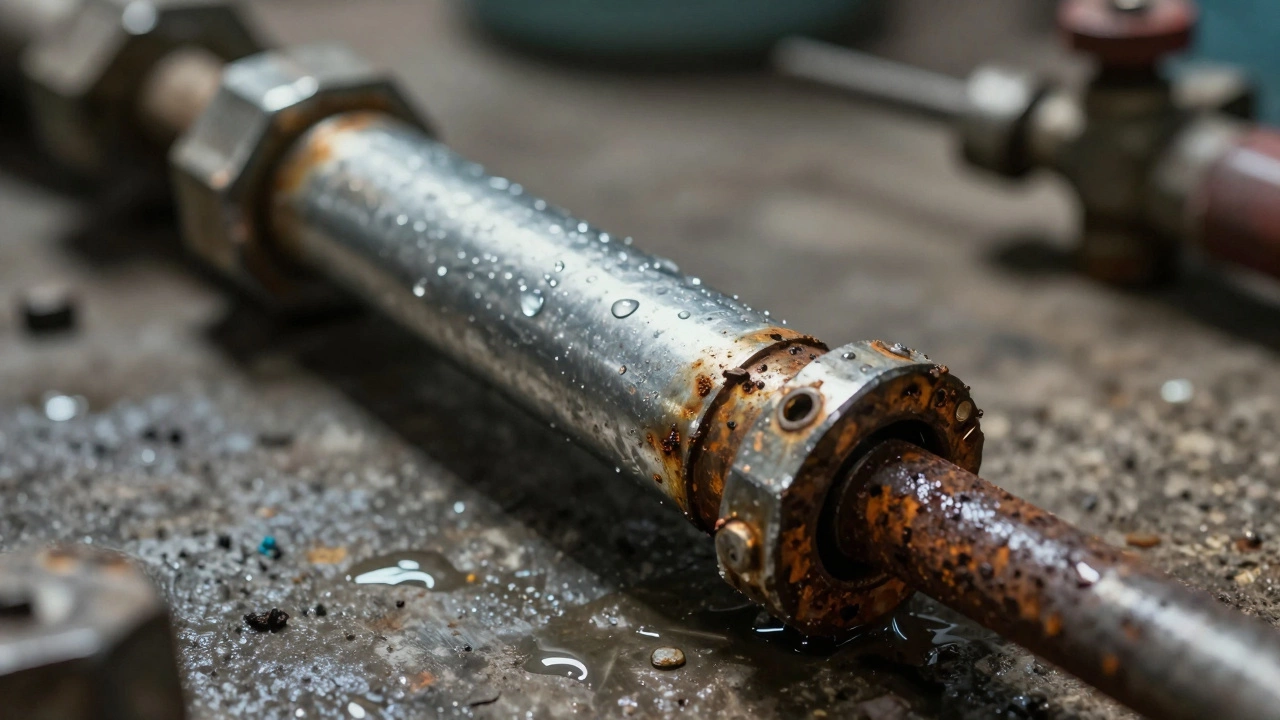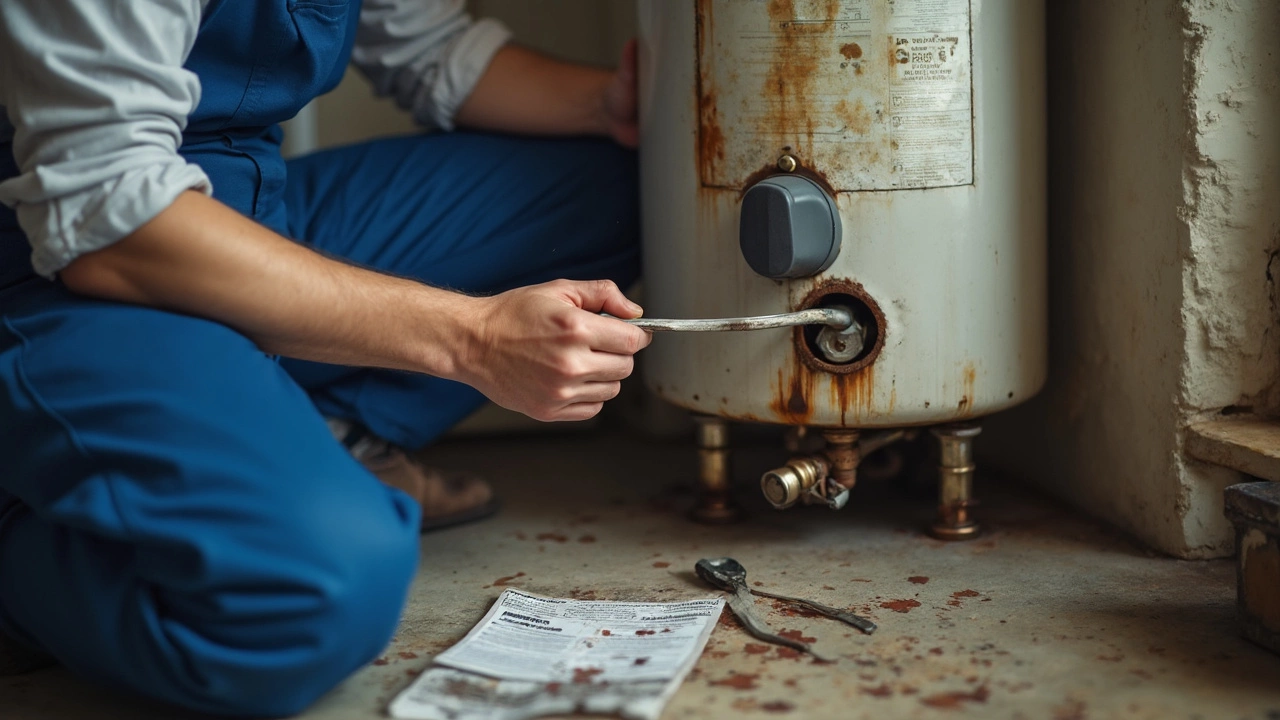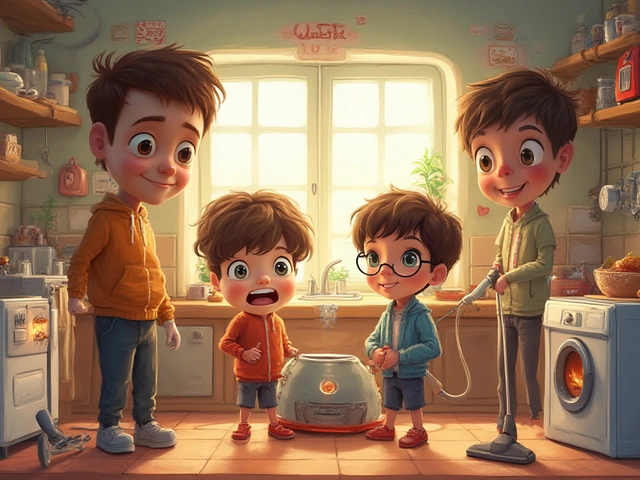How Common Household Appliances Really Work: Explained Simply
July 4 2025Water Heater Lifespan: How Long Do They Last & How to Keep Them Going
Wondering when your hot water will quit on you? Most water heaters bend the rules of time, but they’re not immortal. Knowing the average life span and what speeds it up or slows it down can save you from a cold shower and a nasty repair bill.
How Long Does a Water Heater Usually Last?
On average, a standard tank‑type water heater lives about 8‑12 years. High‑efficiency models or those made from stainless steel can push 15 years or more. Electric units often outlast gas ones by a couple of years because they have fewer moving parts. That said, the real number depends on a few everyday things:
- Water quality: Hard water leaves mineral build‑up inside the tank, acting like a blanket that makes the heater work harder.
- Installation: A proper vent, correct gas pressure, and secure electrical connections keep the system running smoothly.
- Usage patterns: Families that use a lot of hot water (big baths, many loads of laundry) put more stress on the heater.
- Maintenance routine: Regular flushing and checking the anode rod can add years to the life of the tank.
If you’ve got a unit that’s already past the 10‑year mark, keep an eye on the signs that it’s leaning toward the end of its run.
Tips to Extend Your Water Heater’s Life
Good habits are cheap, and they pay off in hot water and lower bills. Here are the top three things you can do without calling a pro every month:
- Flush the tank once a year. Sediment builds up at the bottom, reducing efficiency and heating speed. Pull the power or gas, attach a garden hose to the drain valve, and let the water run until it looks clear.
- Check or replace the anode rod. This sacrificial metal piece eats the rust before the tank does. If it’s more than half‑consumed, swap it out. It’s a simple DIY job that adds years to the tank.
- Insulate the tank and pipes. A 1‑inch blanket cut to size keeps heat from escaping, so the heater doesn’t have to work as hard. Wrap the hot‑water pipes too; you’ll notice the water staying hotter longer.
Don’t forget to set the thermostat to around 120 °F (49 °C). Higher temperatures speed up corrosion and waste energy, while lower settings might not give you enough hot water for a proper wash.
When It’s Time to Replace
Even the best maintenance can’t stop every failure. Look for these red flags:
- Strange noises – rumbling, popping, or whining usually means sediment is moving around or the heating element is failing.
- Leaks – water pooling around the base is a clear sign the tank is cracked or the connections are loose.
- Rusty water – a brown tint indicates internal corrosion. It’s probably time for a new unit.
- Increasing bills – if your energy cost spikes without a change in usage, the heater is losing efficiency.
When you spot any of these, call a certified gas engineer. They’ll confirm the problem and advise whether a repair makes sense or a replacement is the smarter move.
Bottom line: a water heater isn’t a set‑and‑forget gadget. A yearly flush, a quick anode check, and a thermostat tweak can push the average life well beyond ten years. Keep an eye on the warning signs, and you’ll know exactly when it’s time to call the pros. Stay warm, stay safe, and enjoy hot water on your terms.
 15 Dec
15 Dec
How Often Should You Replace the Anode Rod in a Water Heater?
Replace your water heater's anode rod every 3-5 years to prevent tank corrosion. Check it every 2 years-rusty water or bad smells mean it’s time. A simple fix saves thousands.
Read More... 27 Jun
27 Jun
How Long Should Your Water Heater Last? Lifespan, Signs, and Replacement Tips
Everything you should know about how long a water heater lasts. Discover practical maintenance tips, warning signs, and real facts to help you plan for a replacement.
Read More... 9 May
9 May
Should You Flush a 10 Year Old Water Heater? Essential Facts You Need Before Touching That Valve
Wondering if it's a good idea to flush your old water heater? This article breaks down what actually happens inside a ten-year-old tank, the risks and rewards of flushing it, and how you can keep your hot water running safely. We'll cover the warning signs you can’t ignore, what to do if your heater’s on its last legs, and the simple steps that save you money on costly breakdowns. Get straight talk and real tips—especially if your heater’s still kicking after a decade.
Read More... 8 May
8 May
How Long Should a Water Heater Last? Know When to Repair or Replace
Wondering how long your water heater should actually last before it starts acting up? This article breaks down the average lifespan of different water heater types and what really impacts their longevity. You'll learn how to spot early warning signs and get practical tips on keeping your heater running longer. We’ll also cover when a simple repair makes sense versus when it’s smarter to just replace the whole unit. Get all the details so you can avoid cold showers and wasted money.
Read More... 31 Jan
31 Jan
Maximize the Life Expectancy of Your Water Heater with Expert Tips
Water heaters are essential for providing hot water in our homes, but their lifespan can vary greatly based on several factors. In this article, we'll explore the typical lifecycle of a water heater while providing insights into maintenance practices that can extend its life. Learn about the signs of a failing water heater and when it might be time to consider a replacement. Additionally, we'll discuss the benefits of regular maintenance and how to effectively implement it.
Read More...



